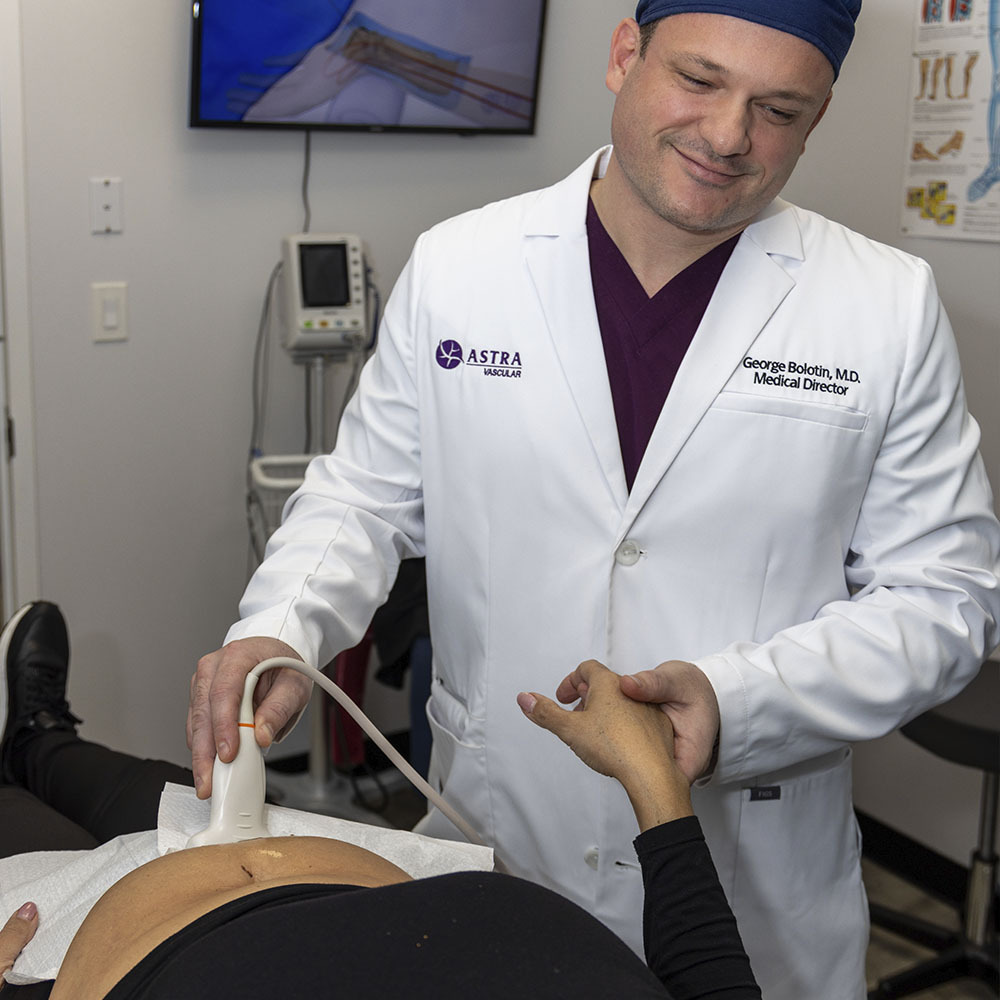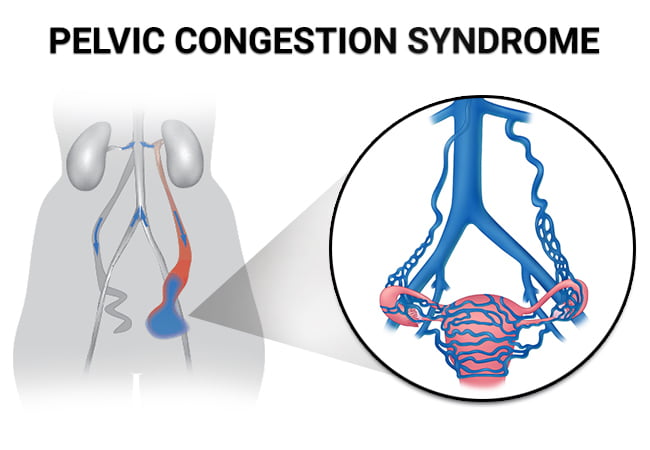
Pelvic pain can stop you from enjoying all the activities you used to do, from bike-riding to playing with the children. Often misdiagnosed, your pelvic pain may be the result of pelvic congestion syndrome (PCS). It’s considered a varicose vein inside your pelvis, so it restricts blood flow back to your heart. Call on Dr. George Bolotin of the Astra Vein Treatment Center in Brooklyn, NY and Bronx, NY. He’s an expert in Interventional Radiology, the perfect practice to diagnose and treat PCS.
 Pelvic congestion syndrome or PCS describes a chronic pelvic pain that affects many women in the US. The pain may radiate from within your pelvis, the lower area of your abdomen between your hips. PCS occurs frequently in women during their fertile years and is very common in women who have given birth to multiple children.
Pelvic congestion syndrome or PCS describes a chronic pelvic pain that affects many women in the US. The pain may radiate from within your pelvis, the lower area of your abdomen between your hips. PCS occurs frequently in women during their fertile years and is very common in women who have given birth to multiple children.
The veins in your pelvis are responsible for transporting deoxygenated blood back to your heart. When they malfunction, blood starts to build up in them, which is usually the cause of your pain. The veins distort and change shape, much like varicose veins on the surface of your skin. Eventually, those veins cause you pain.
This problem for women results in approximately 10 to 15 percent of visits to pain clinics and gynecologists. If you’re suffering from PCS, visit Dr. George Bolotin at the Astra Vein Treatment Center in Brooklyn, New York and Bronx, New York. He diagnoses all types of vein conditions and provides unrivaled pelvic congestion treatment.
 You may not experience PCS until you’re pregnant, but it may continue to bother you afterward. The most obvious symptom is chronic pelvic pain. Your vascular Brooklyn and Bronx vein doctor may recommend a pelvic congestion syndrome ultrasound if your pain is extreme to better diagnose your condition.
You may not experience PCS until you’re pregnant, but it may continue to bother you afterward. The most obvious symptom is chronic pelvic pain. Your vascular Brooklyn and Bronx vein doctor may recommend a pelvic congestion syndrome ultrasound if your pain is extreme to better diagnose your condition.
With PCS, the pain in your pelvis tends to increase throughout the day, especially if you have to sit or stand at work for long periods. Fortunately, the pain tends to diminish after a night’s sleep. Other factors that can increase your pain include:
Until recently, successful PCS treatment had been rare due to incorrect diagnoses and a poor understanding of the condition’s vascular causes. Many of the symptoms of pelvic syndrome are the same as other medical conditions. Even today, malfunctioning veins in your pelvis often defy proper diagnosis.
As a specialist in Interventional Radiology, Dr. Bolotin uses imaging tests, such as with a pelvic congestion syndrome ultrasound, to make an accurate diagnosis and even perform treatments. He recognizes the slight differences in your symptoms between vein conditions and fibroid conditions because he is an expert in and treats both.
Doctors today often rely on medications or minimally invasive catheter techniques to treat pelvic venous congestion. Medications are useful for many cases. Women report positive results from such medicines as:
During a minimally invasive trans-catheter embolization procedure, Dr. Bolotin uses a venogram, injecting contrast dye into your ovaries through a catheter to find problem veins. If Dr. Bolotin finds problematic varicose veins, he embolizes them. Women who have received any PCS treatment report:
If medications don’t work to eliminate your pain symptoms, you may require a trans-catheter embolization procedure to effectively seal the problem vein from inside. This procedure follows a series of standard steps, including:
This procedure is performed in your doctor’s office, and you can walk out when it’s completed. You can return to work after a day of rest, but you usually have to wait about a week before you can resume heavy lifting and strenuous exercise. Contact Dr. Bolotin and his team at the Astra Vein Treatment Center to schedule your initial consultation.
Vein & Vascular Medical Care
4209 Ave U, Suite A.
Brooklyn, NY 11234
(347) 934-9068
Vein & Vascular Medical Care
869 E Tremont Ave
Bronx, NY 10460
(929) 447-4563
Vein & Vascular Medical Care
30-71 Steinway St
Astoria, NY 11103
(929) 486-2201